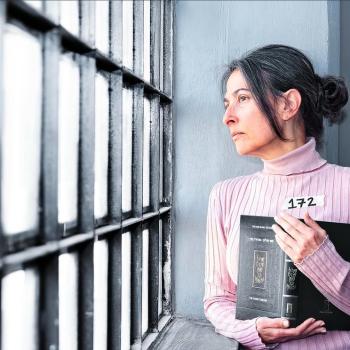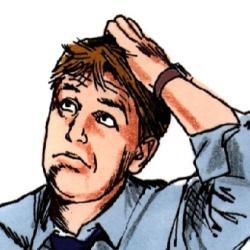David Barton of WallBuilders is a writer of American history popular among many evangelicals, especially homeschoolers. His latest book, The Jefferson Lies, has just been withdrawn by Thomas Nelson Publishers, which calls itself the world's largest Christian publisher, because of "some historical details included in the book that were not adequately supported."
As a member of the Republican Party platform committee at the upcoming GOP convention, Barton is a force in conservative Christian circles. Nevertheless, some of his critics of late have been conservative Christians concerned that Barton was distorting or exaggerating Christian influence in early America.
The Thomas Nelson decision came after World, a conservative evangelical magazine, published a report by Thomas Kidd, a distinguished historian of early America at Southern Baptist affiliated Baylor University. Two professors at conservative Grove City College have also issued a book of rebuttal.
A press conference by some evangelical clergy in Cincinnati threatened a Thomas Nelson boycott if the Barton book weren't withdrawn. "You can't be serious about racial unity in the church," one pastor there declared, "while holding up Jefferson as a hero and champion of freedom."
Critics complain that Barton whitewashed Jefferson's views and practices on slavery by claiming Virginia law precluded the freeing of his own slaves. Warren Throckmorton, one of the Grove City College authors, provided a copy of the 1782 Virginia Law of Manumission on his blog to illustrate how Barton was wrong.
It's all rather sad. Barton, whom I've heard speak once but never met, is a winsome, compelling speaker who presumably means well in rebutting the secular histories of the last 100 years that virtually ignore serious religiosity in early America. Some of his exaggerations seem unnecessary to his objective. He claims Jefferson authorized worship services in the U.S. Capitol and "ordered" the U.S. Marine Band to participate. Evidently there's no evidence that Jefferson directly did either. Jefferson did regularly worship at church services convened in the U.S. Capitol at a time when early Washington had few church buildings. And the U.S. Marine Band did perform there. This vignette of Jefferson and other early American statesmen worshipping in the Capitol stands on its own significance and does not need unsupported embellishment.
Barton is not a complete stranger to subtlety. He admits that Jefferson was a Unitarian who disbelieved the Trinity and Christ's deity. Barton, however, chooses to emphasize Jefferson's supposed connections with early Stone-Campbell Restoration Movement preachers without offering much direct evidence. It would be more interesting to know more about Jefferson's nearly lifelong involvement with the Episcopal Church and its Church of England predecessor.
As to Jefferson's slave holding, it's my impression Jefferson didn't free them, despite his convictions, partly because he was a spendthrift and, by his final years, was mortgaged to the hilt. Had he been a better manager like George Washington perhaps he could have freed his slaves at the end, as Washington did.
On the other hand, that quote from the Cincinnati pastor rejecting Jefferson as a "hero and champion of liberty" was silly. Jefferson's words in the Declaration of Independence declaring human equality inspired and ultimately ensured the end of slavery. And Jefferson, who signed the end of the overseas slave trade, was the last president until Abraham Lincoln publicly to denounce slavery while in office.
A Christian worldview readily acknowledges the sinfulness and frailty of all people, even saints. It also realizes that Providence often deploys even the reprobate for some ultimate good. In On Two Wings: Humble Faith and Common Sense at the American Founding, Catholic philosopher (and co-founder of my Institute on Religion and Democracy) Michael Novak pays homage to Jefferson's greatness and influence, even while admitting that Jefferson rejected orthodox Christianity and was a sharp critic of Catholic "priestcraft."
Novak likes to tell the story of Jefferson heading to church with his red prayer book on Sunday morning. A passerby asks why he should go there, since he does not "believe a word in it." Jefferson replied, without denying the charge: "No nation has ever yet existed or been governed without religion. Nor can be. The Christian religion is the best religion that has ever been given to man and I as chief magistrate of this nation am bound to give it the sanction of my example."




